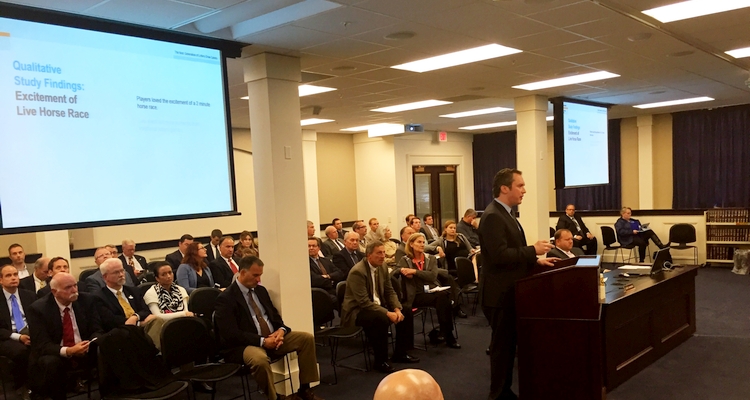At its first meeting since being reorganized last month, the Kentucky Horse Racing Commission was treated to a detailed explanation of the new EquiLottery daily lottery draw game and told that the innovation would help the southern state to increase interest in its horseracing industry.
The Tuesday meeting saw the founder of the game, Brad Cummings, state that EquiLottery players are to be provided with random numbers while the day’s eventual winner would be determined by the victor of a single horse race. The non-parimutuel game would also not allow handicapping or horse odds to play a part and would see the daily champion receive 50% of the total pot.
Regarding the half of the pot that would not go to the winning player, Cumming proclaimed that 80% would be earmarked for the lottery with the remainder going to EquiLottery, race number and horse name provider AmTote, outlets carrying the game and the local horseracing industry.
“The Commonwealth Of Kentucky and its signature horse industry have given me much more than I can ever pay back,” said Cummings. “Having the opportunity to present to the Kentucky Horse Racing Commission our vision for EquiLottery, which opens up millions of new people to a sport so important to my adopted home state, is a thrilling and humbling experience.”
Upon agreeing to implement EquiLottery, the Kentucky company declared that it would allow participating lotteries and racetracks to leverage its race-watching mobile app and website for free while additionally handling all software integration, licensing and race data duties.
Cummings moreover revealed that EquiLottery would be responsible for the provision of consulting services including the year-round calendar of pre-qualified races, negotiating licensing rates with racetracks and horsemen and providing best practices for implementation.
“Our primary goals have been and will always be to introduce millions of new people to the excitement of live horseracing while creating an expansion of the lottery player base and returning new profits to the good causes state lotteries exist to support,” said Cummings. “After six and a half years and millions of dollars in investment, we are on the brink of accomplishing these goals.”



